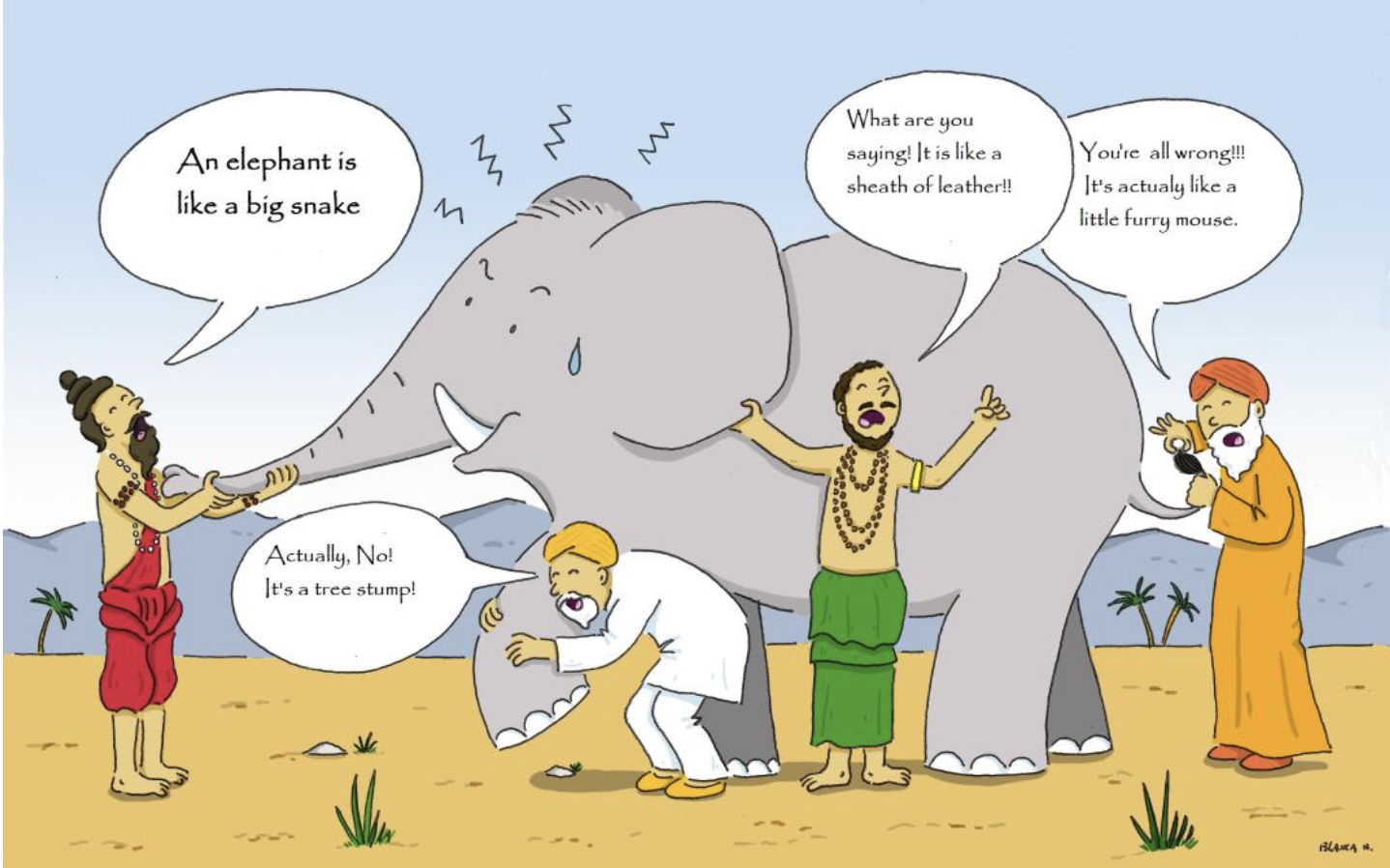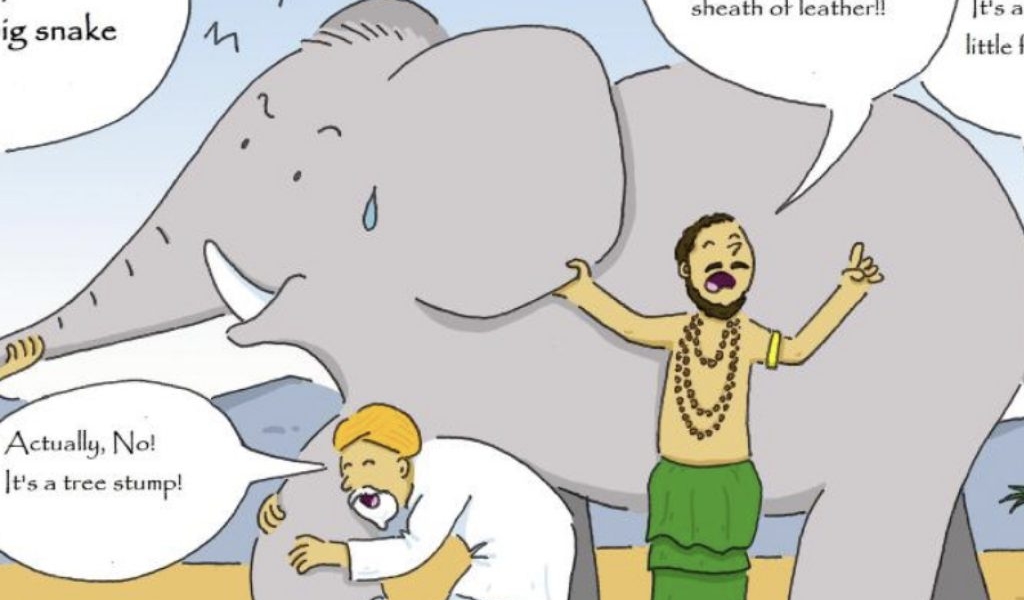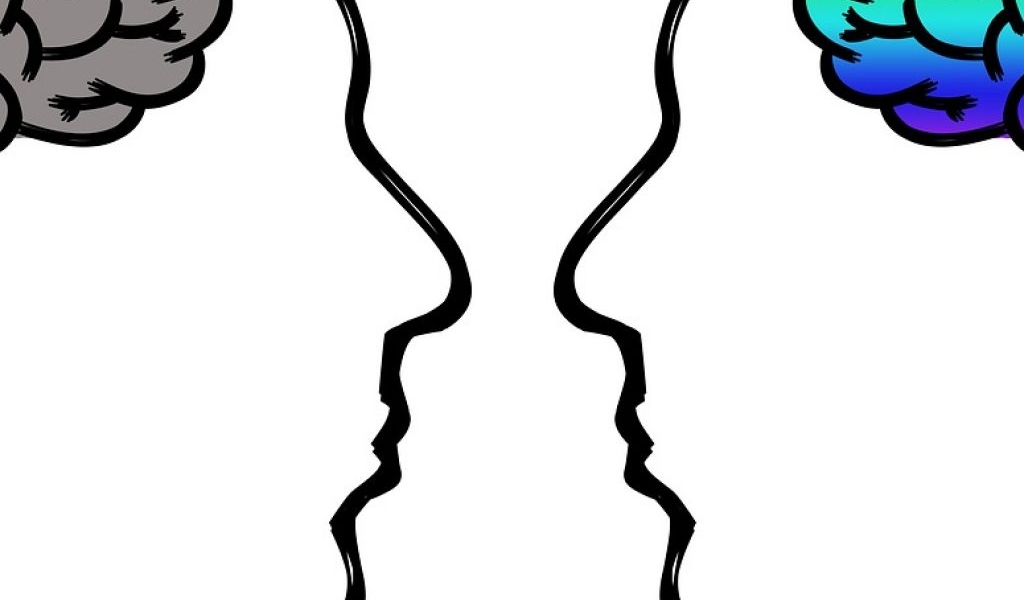Two of the biggest mistakes we make in figuring out what is going on in our lives are:
- to assume that our perceptions of reality match empirical reality.
- to assume that anyone who disagrees with us is simply wrong.
One of the great ironies of life is that no two people see anything exactly the same way.

Rumi taught the teaching story depicted above about four blind men encountering an elephant. Consider the significance of the following points:
- Each one encounters a different part of the elephant because the elephant is too large for anyone of them to fully know all at once.
- They are all blind.
- The “truth” of what an elephant is does not change as a result of their various points of view.
Each one of us functions the way we do as a result of our unique journey being who we are. Some of us get quite stuck and set in our ways, while others remain open – learning, evolving, and changing.
Relationships get really complicated in this context. We perceive ourselves and each other through our unique information filtering processes.
Within my family dynamic was a toxic relationship between my sister and me. My mother once told me that when my sister first laid eyes on me, she looked at me with such vile hatred that my mother felt a heightened need to protect me from her. Those who believe in karma and reincarnation might think this issue predated this lifetime. Nonetheless, this drama contaminated the entire family.
As an adult, I noticed that whenever I saw my brother after he had been visiting with my sister, it was as though he had become infected with her perception of me, and he would treat me as though her judgments of me were the truth. I remember having a conversation with him and asking if the me my sister spoke to him about bore any resemblance to the me he knew through personal experience. Bewildered, he admitted, “No.”
Simply, one was a figment of her imagination, and the other was how my brother actually experienced me. And, of course, I had my own perception of who I was, and none of those points of view were identical. Life is really very complicated. Sorting out our respective truths and what they are based upon can help us have greater compassion and understanding for one another.
The fact of the matter is that no two people will experience and understand a shared experience in exactly the same way. Ironically, the empirical is often less significant than the ability of those having different points of view to seek understanding of each other. Next time you are baffled by another person’s point of view, try looking through their eyes, and see if you can get them to take a look through yours as well.
For further insight into mastering the art of being you, read more here. If you’re feeling social, I also provide daily wisdom and tidbits on my Instagram account. Give me a follow so we can thrive together!










